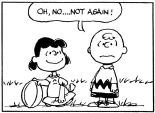
 The rich *like* govt services!
The rich *like* govt services! 
 The flat taxers say the rich don't consume more highways than the middle class or poor people, so why should they pay more? But something has been bothering me about this. The poor and middle class don't own banks and car companies that need to be bailed out. Or oil companies that destroy Alaska or the Gulf of Mexico if we don't keep a close eye on them.
The flat taxers say the rich don't consume more highways than the middle class or poor people, so why should they pay more? But something has been bothering me about this. The poor and middle class don't own banks and car companies that need to be bailed out. Or oil companies that destroy Alaska or the Gulf of Mexico if we don't keep a close eye on them.
The scale of government services these people want is truly astonishing. It's in the trillions of dollars. And the armies we have to supply them with to keep their fortunes safe. Millions of Americans serve them. They like to say they keep us all free, but I've noticed that the wars we've been fighting lately have been about oil, not freedom. So let's not forget that.
This is their form of Medicare or Social Security. They don't pay into the system to cover the expense. The didn't earn this as the middle class earned the services they want to cut. Yet periodically they hold our economy hostage and demand the rest of us sacrifice ourselves for them. This is an important point not to be overlooked.
So when they say the government screws everything up, what they're really saying is they don't want you to get your services, but please don't talk about not bailing out their Too Big To Fail banks. That has to be taken care of before we get new bridges or pay our teachers.
 Baseball vs real life
Baseball vs real life 
I went to see Moneyball today and loved it.
It's a baseball movie, but not like any other you've seen.
Because it's also a math movie, like A Beautiful Mind or Good Will Hunting, or an iconoclast movie like Citizen Kane or Tucker. I didn't make this up, my good friend from Nashville, Rex Hammock, put together a Venn Diagram review of Moneyball. I concur mightily (and thanks for the recommendations of movies I haven't seen yet).
I read the book too, and loved it. But the movie and book are different enough and Brad Pitt is a wonderful actor, and he really shines in the role of Billy Beane.
The movie makes a point that there's baseball that the fans love, the team loyalty, the love of the players, the acting of baseball, the heart of baseball. But there's also Billy Beane's baseball, the game as reality. A business of dollars and cents. Of big decisions about people's lives, and what success and failure mean. It's good to know when you're talking about baseball the drama, the stage play -- and baseball the enterprise.
This is important to think about because we're entering political season in the US. Sure, there's the stage play, the horse race -- and it's captivating. I love watching the Republican debates, not because the lines the actors say mean anything -- they don't. They're designed to convey a feeling about the person who's saying them. If you listen to the actual words, when they make any sense, and that's a rare thing -- they are often outright lies. Not small white lies, but massively huge and important ones.
The drama is the logic of the baseball insider. They think in terms of perceptions or lately "optics" (they're exactly the same thing). The problem with that view is that as with baseball, there's another side to it. The one where real people's lives are changed. Only here the numbers are orders of magnitude greater. In baseball, Billy Beane chooses to play major league baseball after high school, instead of going to Stanford, and his life changes. In presidential politics in the US, billions of people's lives can change based on the decisions we make. And trillions of dollars.
It also tends to be that way in technology too. While I was out at the movies today, the piece I wrote earlier today got over 30,000 page reads. Not too many people saw it as me rooting for the wrong team, because for whatever reason, Facebook doesn't inspire that kind of fandom. Had I been writing about Apple, I would have totally offended their fans, and would have gotten a lot of grief that I didn't get for challenging Facebook. And I got some grief from people who work at Google. As I have in the past gotten flamed by people who work at Mozilla. They don't have Apple's army of trolls, but they're willing to do it for themselves.
Again, there are a lot more people's futures at stake in this than in baseball. Sure they have nice people working on the Chrome team. They also come and go. Are they respected by their bosses? As a user, I have no way of knowing, and it's not really a wall I want to look through and try to understand. To me Google is a whole entity, not individuals. They will make their decisions the way companies decide things. And I don't think they're any better or different than BP or Exxon or one of the banks that became too big to fail. I think they're insinuating themselves between all of us, and they're going to use that position to control things, once they have it all locked down, if they ever do. That's the way business works. If you work inside Google and think it works differently, then I think you're naive. I don't think it makes you a bad person, or incompetent. My concerns about Google are not personal criticisms of you. I don't know you.
I've been building up to writing this piece for a long time, and I doubt if many people will read it, or care. But I wanted to say it. I don't think we can afford to view politics or technology as we view baseball. In baseball, I can personally insult Yankees fans, or condescend to Cubs fans, or feel a soulful affinity with fellow Mets fans, and it's all fun. Because we know it totally doesn't matter. But these other things do matter. So we really can't afford to think of it as Us vs Them. It's not Republicans vs Democrats, it's Americans deciding what we want our government to do. And in technology, it's the people of the world, in very much the model of Jefferson, deciding what we want to be. And not having corporations and their need for profit, be the sole determinant.
I don't care if the people at Facebook and Google and Apple and Microsoft et al don't like this. I'm not talking to you, I'm not even talking about you. When I talk about technology or politics (really teh same thing) I am talking to other people who might read this, whose thinking I would like to influence. So if you take it personally, your imagination is betraying you.
I'll close this one with a line I've put at the end of many stories I've published here, going back to October 1994.
Thanks for listening.
 Facebook is scaring me
Facebook is scaring me 
Yesterday I wrote that Twitter should be scared of Facebook. Today it's worse. I, as a mere user of Facebook, am seriously scared of them.
Every time they make a change, people get angry. I've never myself been angry because I have always assumed everything I post to Facebook is public. That the act of putting something there, a link, picture, mini-essay, is itself a public act.
This time, however, they're doing something that I think is really scary, and virus-like. The kind of behavior deserves a bad name, like phishing, or spam, or cyber-stalking.
 What clued me in was an article on ReadWriteWeb that says that just reading an article on their site may create an announcement on Facebook. Something like: "Bull Mancuso just read a tutorial explaining how to kill a member of another crime family." Bull didn't comment. He didn't press a Like button. He just visited a web page. And an announcement was made on his behalf to everyone who follows him on Facebook. Not just his friends, because now they have subscribers, who can be total strangers.
What clued me in was an article on ReadWriteWeb that says that just reading an article on their site may create an announcement on Facebook. Something like: "Bull Mancuso just read a tutorial explaining how to kill a member of another crime family." Bull didn't comment. He didn't press a Like button. He just visited a web page. And an announcement was made on his behalf to everyone who follows him on Facebook. Not just his friends, because now they have subscribers, who can be total strangers.
Now, I'm not technically naive. I understood before that the Like buttons were extensions of Facebook. They were surely keeping track of all the places I went. And if I went to places that were illegal, they would be reported to government agencies. Bull Mancuso in the example above has more serious things to worry about than his mother finding out that he's a hitman for the mob. (Both are fictitious characters, and in my little story his mom already knows he's a hitman.)
There could easily be lawsuits, divorces, maybe even arrests based on what's made public by Facebook.
People joke that privacy is over, but I don't think they imagined that the disclosures would be so proactive. They are seeking out information to report about you. That's different from showing people a picture that you posted yourself. If this were the government we'd be talking about the Fourth Amendment.
Also, I noted that I had somehow given access to my Facebook account to ReadWriteWeb. That's puzzling because I have no memory of having done that. And when I went to see what other organizations I had given access to my graph, there were lots of surprises. I think there's a good chance that by visiting a site you are now giving them access to lots more info about you. I could be mistaken about this.
And, until Facebook owns the browser we use, there is a simple way to opt-out, and I've done it myself. Log out of Facebook. And if Facebook had a shred of honor they would make their cookie expire, right now, for everyone, and require a re-log-in, and a preference choice to stay permanently logged-in. With a warning about the new snooping they're doing. Probably a warning not written by them, but by Berkman, the EFF or the FTC. (Yes, dear Republicans, I trust a bureaucrat more than I trust a tech exec in Silicon Valley.)
One more thing. Facebook doesn't have a web browser, yet, but Google does. It may not be possible to opt-out of Google's identity system and all the information gathering it does, if you're a Chrome user.
PS: There's a Hacker News thread on this piece. It's safe to click on that link (as far as I know).
Update: Nik Cubrilovic says that logging out of Facebook is not enough.



